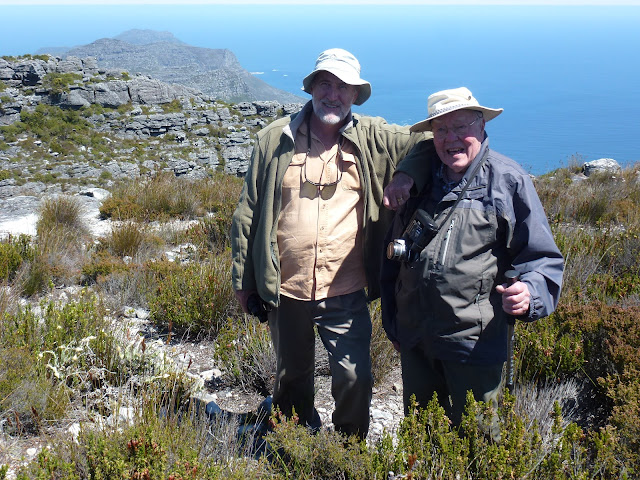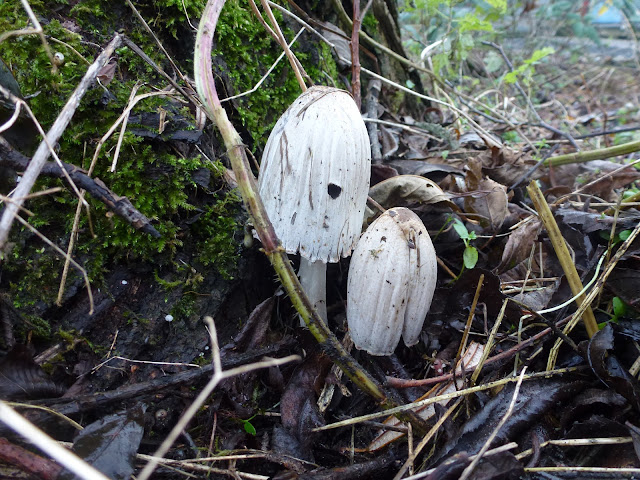My father, John Durdin, died on 20 December. He was 97 and eight months old.
 |
| John Durdin, South Africa's Garden Route, November 2009. |
It may seem a little strange to announce your father’s death through a blog, but it feels apt as he was such a regular presence on Honeyguide holidays over so many years and therefore known to many Honeyguiders.
There is a potted biography for Dad here, from a parish magazine in Plumstead, north Norfolk, where he lived for several decades. This blog is more about noting his Honeyguide links. Naturally it’s highly encouraging when your father enjoys the holidays that you run that he should choose to come on 27 holidays – nearly one a year before a combination of Covid restrictions and age drew a line.
 |
| With cheetah, Drakensbergs 2017 (Jean Dunn). |
Dad’s first was in Honeyguide’s first year, 1991, to The Lot in France, where he returned in 1997. Other European destinations cover a big proportion of Honeyguide’s back catalogue: Mallorca, Spanish Pyrenees (twice), Eastern Greece, Slovakia, Menorca, Crete, Algarve, Lesvos, Madeira, Poland, Extremadura, French Pyrenees and the Dordogne (three times – where the wildlife and Cathy and Keith’s hospitality at Castang prompted return visits, including his final overseas trip in 2019.)
Dad had a particularly strong connection to the Danube Delta, with five visits. Holiday reports note that he was a guest of our local partners, Ibis Tours, a mark of mutual affection, also reflecting that we are both family firms.
 |
| With Geoff Crane, Table Mountain, 2015. |
Some my father’s happiest days – and mine – were with Geoff Crane in southern Africa (and provided some of the best photos, too). The Western Cape in 2005 and 2015, Garden Route in 2009, Drakensbergs & Zululand in 2017 and finally Namibia in 2018, then aged 92.
 |
| Robberg beach, South Africa, 2009 (no, he wouldn't have minded). |
It’s partly that Dad liked the mix of wildlife that Honeyguide offers, and the sensible pace. It was also the social side: he quickly made friends with Honeyguiders, and the mutual affection is shown in emails arriving recently.
Kate Dalziel in Cornwall says: “I count myself lucky to have been on two trips with him - the Danube Delta and the Dordogne. He was delightful, knowledgeable but unassuming and with a real twinkle.“ Martin Kelsey in Extremadura says: “I remember him extremely well, he was a delightful and rather mischievous fellow!” From Rob Lucking, Honeyguide leader: “I have fond memories of him in Lesvos - he was excellent company and had a great sense of fun!”
The sense of humour extended, at times, into anecdotes, often concluded with a Sidney James type of laugh, which had a knack of carrying you with him, whether or not the story was a good one. Yes, there were a couple of slightly embarrassing ‘Dad moments’ from brief speeches on last evenings, though it came from a pride in Honeyguide and especially for the conservation contributions through the Honeyguide Wildlife Charitable Trust. And there were a couple of holiday highlights that had everyone in stitches: one that comes to mind is “I’m wondering what the blokes down the pub will say when I tell them I’ve been watching penduline tits!” Perhaps you had to be there.
Post-Covid, there are two cameo appearances to note. Two days in north Norfolk, 17 & 18 August in 2021 was in the second of the two years when Honeyguide was restricted to the UK. The two days were for regular Honeyguiders Sue & Peter Burge and Helen & Malcolm Crowder and included a visit to my father’s garden and exotic plant collection in his conservatory – a good wet-weather option in north Norfolk. Then, as recorded in News 2022, an exhibition and sales of my father’s paintings raised a little over £600 for Honeyguide's charity, plus a tidy sum for his village church.
 |
| Back row: Chris Durdin, John Durdin, Malcolm Crowder. Front: Helen Crowder. Rietvlei, SW Cape, Oct 2015. |
The funeral will be help at Baconsthorpe Church in north Norfolk on 15 January. Tributes and donations to Norfolk Wildlife Trust can be made via this Just Giving Link.
Chris Durdin





